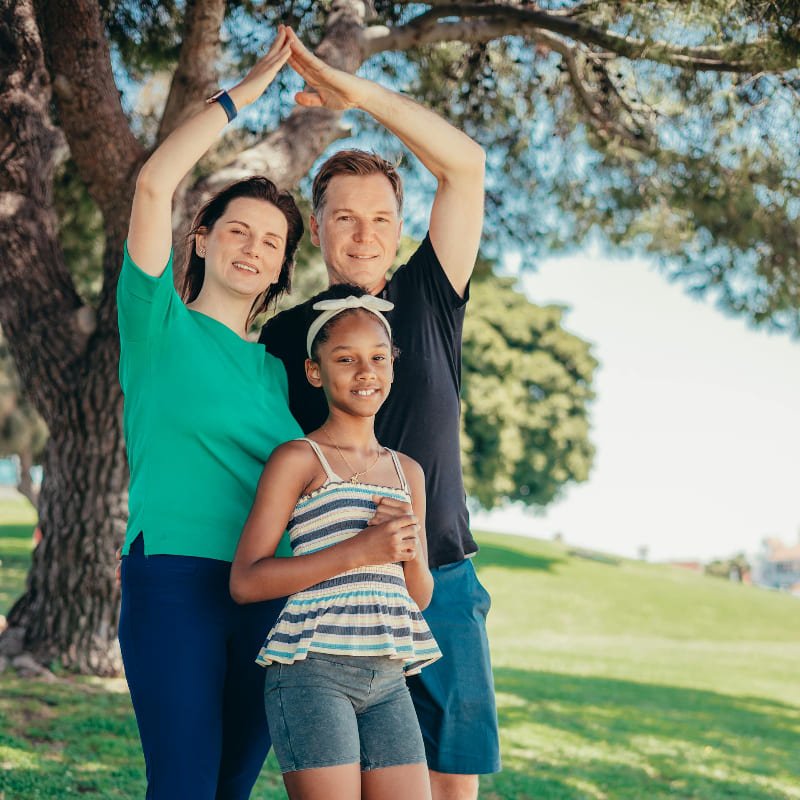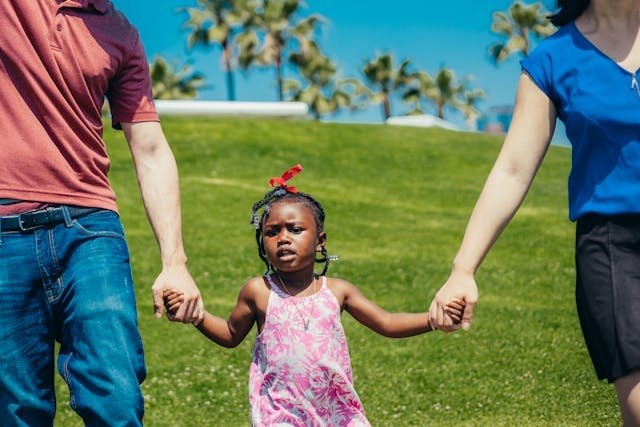Last Updated on April 13, 2024 by Team CrazyJackz
You would cross your heart, and whisper a silent prayer. You would dream of the moment your child looks up to you, admiring how you walked that extra mile when life had other plans. In the heart of hearts, every adoption is a story of acceptance, sacrifices, and love. Precisely why, adoption is such a special occasion to celebrate the emotions holding families together.
Many years from now, you will still cross your heart, thankful to the soul of love, to that day you held your adopted child and created the happy family you cherish. Today, in this article, let’s explore how adopting a child fosters connections and shapes the concept of family.
So, how does Adoption creates a family for both you and your child? What is the profound impact of adoption on family dynamics and in creating families filled with love, and joy? Finally, What are the emotional, legal, societal, and practical aspects of an Adoptive Family?
How does Adoption create a True Family for both the Adoptee and the Adoptive parent?

Adoption verily challenges the myth that families are born solely of blood relationships. Part of this myth remains rooted in the social fabric, where it is often taken for granted that children should grow up with their biological parents. Yet, parents who adopt disagree with this, and so will social workers, who are much too familiar with the tragedy of abandoned children.
Families are made in love and joy, and the decision to adopt deeply strengthens the existing bond of togetherness. In a loving home, every moment is a celebration through thick and thin. Although adoption challenges the perception of a traditional family, yet at the end of the day, love wins.
At the core, all adoptions somehow relate to a sense of rescue, and of celebrating the magic of love. Despite its issues, many families successfully adopt and gift an amazing life to the child. Such a happy coincidence is made possible by establishing and nurturing a deep emotional connection with the child.
Nevertheless, to create a family held together in love and joy, the emotional well-being of the child is of utmost importance. No two stories of adoption are the same, as circumstances vary depending on the unique family situation. That said, certain common issues related to adoption include identity crises, lack of adjustment, abandonment issues, self-doubt, and depression.
For example, in an open adoption, despite the best upbringing, the child may have to grow up with the dilemma of choosing between parents. Whereas, in a closed adoption, the child may face a deep identity crisis, trying to understand his/her place in the adopted family. Thus in either circumstance, it is extremely important to be supportive of the child and stand by them, no matter the circumstances.
Adopted children need a more enhanced understanding of family values and the societal context. Likewise, it is important to have clear family goals. Thus rely on open communication, and always have the best intentions for the adopted child, just as you would approach the upbringing of your biological offspring. Ultimately, it’s through these efforts that adoption truly creates a family filled with Love and compassion.
How Adoption Creates a Family Structure Legally?
Adopted children are entitled to the same rights to inheritance as biological children. The process of adoption severs the inheritance rights from biological parents, as a new relationship is formed. An adopted child is a legitimate heir by all means and has the right to receive both emotional and financial support from adoptive parents. As parents, you have the legal responsibility to provide and care for the adopted children until they are 18.
As the legal rights of adopted children and biological children are the same, parents should avoid distinguishing between them. And, this in-turn proves that creating a family with an adopted child holds the same legal significance as forming a family with a biological child. Thus adoption indeed creates a genuine family structure legally for both the parent and the child.
How Society’s Views on Adoption Create Negative Family Dynamics?

As an Adoptive Family, the societal perceptions of adoption can be tough to handle. Unfortunately, the society at large is not open to the idea of adoption. Many adoptive parents say that they wish they could stay under the radar! As adoptive parents, you must realize that you will challenge society’s norms of traditional parenthood, and it is not your job to answer all the questions. People can be insensitive and that’s not your problem.
However, you should be making sure that the effects of society’s misconceptions do not come between the parent and child relationships thus disturbing your family dynamics. You need to stand by your child as a strong support if he/she is bullied at school, or when a random person at the grocery store passes an ill-advised comment.
Moreover, things can be especially difficult for a trans-racial adoption. The obvious physical dissimilarities within the family (between the parent and the child) can raise eyebrows, and you should be ready for it. It can lead to uncomfortable questions in the social circle, and you must be open enough to answer all of them the best you can. You do not have to change society, but on your end, you should congratulate yourself on having done the best you could.
Don’t feel ashamed or embarrassed to be seen together as one family. It is much tougher for the adopted child to go through these feelings. Encourage open communication and remind your children that you love them no matter what others say.
That said, it may not be all bad! You may find support from unexpected quarters. Consider connecting with other adoptive parents as they would easily understand the emotional roller coaster you are going through. Most adoptive parents acknowledge that help from the support group has been crucial in creating a family of love and joy.
- How Adoption Creates Families of Love and Joy? - April 13, 2024
- Heyoka and Narcissist: When a Heyoka Empath Meets a Narcissist - October 18, 2022
- 7 Reasons Why A Capricorn Man Disappears After Intimacy (and What You Can Do About It!) - October 18, 2022

